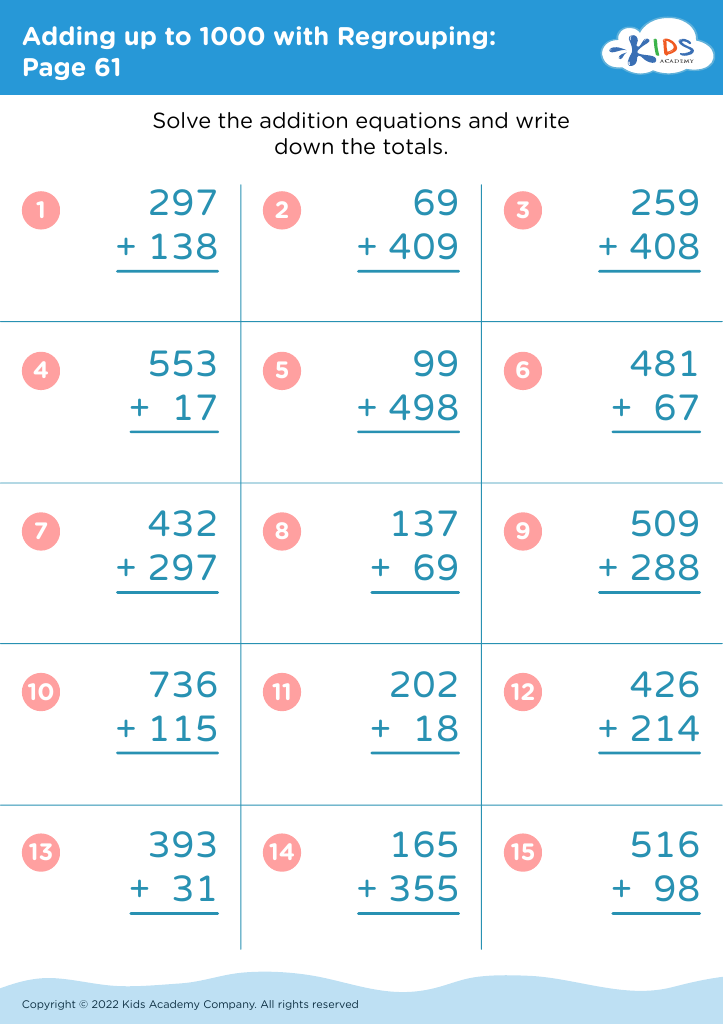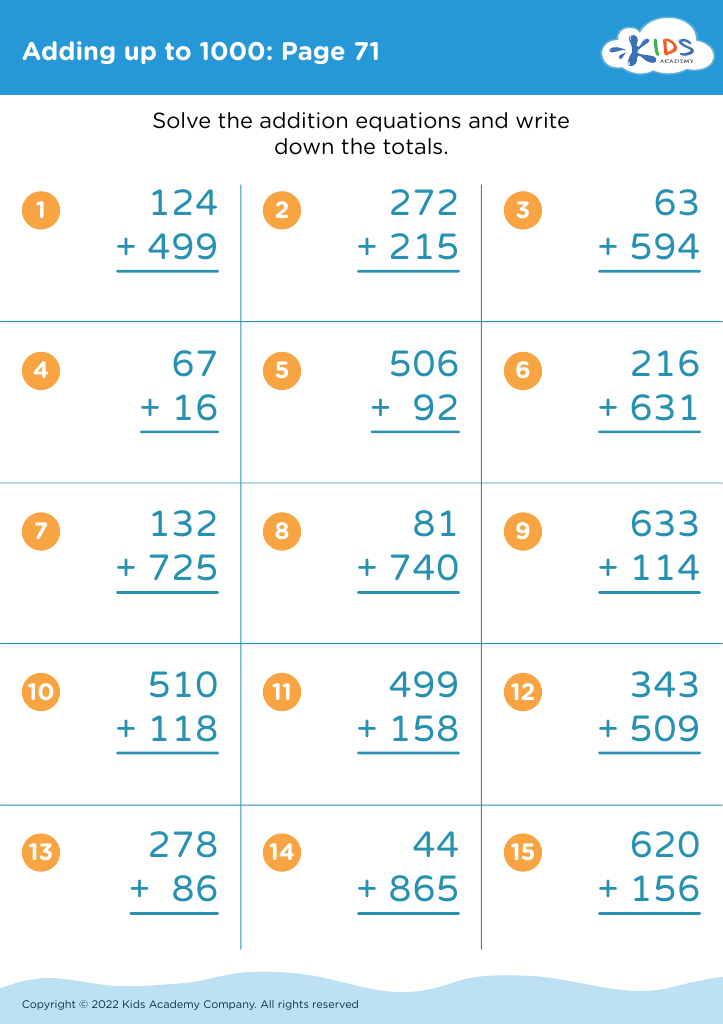Problem-solving abilities Adding up to 1000 Worksheets for Ages 5-7
5 filtered results
-
From - To
Enhance your child's problem-solving skills with our engaging "Adding Up to 1000" worksheets designed for ages 5-7. These fun and interactive resources focus on helping young learners develop critical thinking and arithmetic abilities in an enjoyable way. Featuring a variety of problems that encourage children to explore different strategies and solutions, each worksheet is tailored to reinforce essential math concepts while promoting cognitive growth. Ideal for home or classroom use, these worksheets inspire confidence and nurture a love for learning. Give your child the tools they need to succeed in math and become a proficient problem solver today!
Parents and teachers should prioritize problem-solving abilities in children aged 5-7 because these skills form the foundation for critical thinking and everyday decision-making. Early childhood is a crucial developmental phase where children are naturally curious and eager to explore their world. Encouraging problem-solving helps them learn to think independently and approach challenges with confidence.
At this age, children engage in activities such as counting, simple addition and subtraction, and basic logic games, which not only enhance their mathematical skills but also foster creativity and perseverance. This kind of practice teaches them to identify problems, brainstorm potential solutions, and evaluate outcomes. As they work through these processes, children develop resilience — an essential trait for navigating future academic and social challenges.
Moreover, strong problem-solving abilities contribute to improved collaboration and communication. When children work together to solve problems, they learn to share ideas, listen to others' perspectives, and negotiate solutions, building vital social skills that are important for lifelong success.
In summary, nurturing problem-solving skills in early childhood supports cognitive development, boosts self-esteem, and sets the stage for effective learning and personal growth, making it a vital focus for both parents and educators.




















